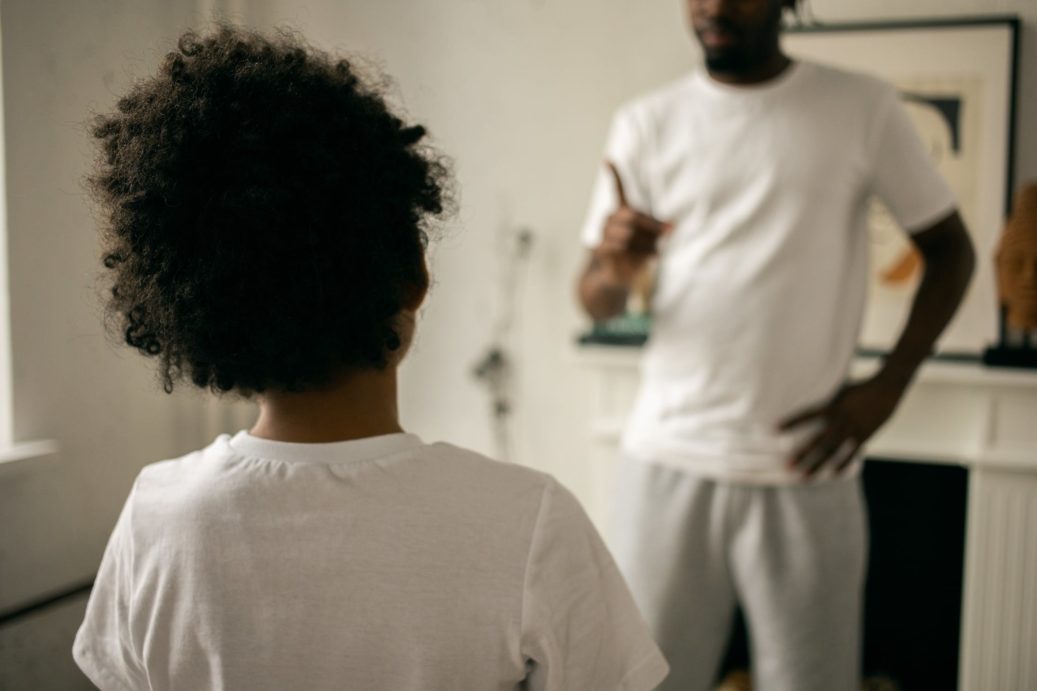Do you ever wonder how your kids can be so mean to each other!? And then, how can you get them to sincerely say they are sorry? Let’s take apart what often happens when kids fight and explore ways to help them learn true repentance and apology.
Let’s face it. Family life is more stressful these days than it’s ever been. With everyone a bit stressed it can be easy to live on edge and ignore the tension for fear of provoking another new argument. When it erupts parents tend to try to solve it quickly by separating kids, forcing apologies or even doling out punishment. I’ve heard many reports of telling kids, “Go to your room until you can say you’re sorry!” Or, “No privileges until you can be nicer.”
The problem with this approach is that while it may “work” to buy some temporary peace and quiet, there is no real repentance or resolution. If you’re trying to be more thoughtful than that, you might be wrestling with questions like:
- “Should I force an apology?”
- “What really is a true apology?”
- “How do I get my kids to say sorry and mean it?”
It starts with me.
The question “What’s going on in me about this issue?” is an important building block in your Foundation for guiding our kids. Addressing our own history with conflict reveals a set of beliefs from our formative years we carry with us into parenthood. The ones we hear most often are:
- Conflict is bad and to be avoided. (Common in families where conflict is suppressed.)
- Winning conflicts is the goal. (Common in families where conflict is readily expressed.
- Losing conflicts or admitting fault is weak and shameful.
3 Scenarios that might sound familiar
Here are some stories from dads in our Connected Families community about their own experience with conflict and how those beliefs were seeping into their parenting. These insightful parents learned to unpack some of the beliefs they were bringing into conflict in their home. Do any of these sound familiar?
Conflict avoidance
Dan shared honestly, “I don’t tolerate conflict. I grew up in a house with constant arguing and decided early on that I would nip it in the bud with our kids by demanding immediate quiet or there would be consequences. It worked pretty well until my oldest hit the tween years, and then it seemed like the kids kept getting angrier all the time. I realized it was because I gave them no permission or example of working to figure things out. I just forced them to bury hard feelings – which only works for so long.” It took Dan quite a while to learn to help his kids truly work things out and reconcile their conflicts.
Bullying
James was concerned about his daughter’s “bullying” of her younger siblings, and figured it was because the daughter was being bullied by someone else. Then came his lightbulb moment: “ I realized it’s me. I had this idea that, ‘I’m the parent, so I can use whatever tone of voice I need to, to get my point across.’” As James realized this he dug deeper: “Why am I the bully? Because I’m feeling poorly about myself.”
Setting an example
Liam also realized the power of his example: “No wonder my kids don’t get along. They’re watching how my wife and I relate as a couple. We argue a lot, but never actually have any healthy conflict resolution.”
A vital starting place for helping kids get along is, to be honest and take stock of your beliefs about conflict and what you model in your own conflicts with others.
This is not quick and easy work. It’s where prayer and spiritual growth meets life’s hard realities.
Search me, God, and know my heart;
test me and know my anxious thoughts.
See if there is any offensive way in me,
and lead me in the way everlasting. Psalm 139:23,24
It can be painful to do this sort of honest self-reflection. But it is an essential first step toward healthy, graceful conflict engagement and resolution. If your starting place for dealing with sibling conflict is to point fingers of blame at your kids, we will only feed the discouragement that fuels their conflict.
Build a Value for Reconciliation
Helping kids learn to navigate their own conflicts begins with your example and effort to lead your children with grace so they value true, heartfelt conflict resolution. As the Apostle Paul said to his own “children” in Philippi, “Whatever you have learned or received or heard from me, or seen in me—put it into practice. And the God of peace will be with you.” Philippians 4:9
Often when I coach parents, I ask them the question, “How might you put Godly reconciliation on a pedestal in your home?” In addition to modeling it, how might you talk about it, memorize scripture, and celebrate it when anyone in the family reconnects their heart to another?
As parents bring God’s grace and truth into their own beliefs and actions about conflict something miraculous often happens: This can break the cycle of bitter, unhealthy conflict and bring healing to generations of hurt and pain. Claim this by faith as you gradually grow your family toward God’s wonderful purposes!
So, should I force an apology?
With all this in mind, let’s take a minute to reconsider the questions from the beginning of this article: “Should I force an apology?”
Research shows that apologies are important because they help kids develop a better moral compass for realizing what is right and wrong. Most young children don’t view coerced apologies as effective. Making an angry child say, “Soooorrrrry,” may well teach kids it’s ok to lie to get out of trouble. Coerced apologies are also shaming, making it more likely the offense will be repeated. Apologies are important. But, as we’ve been saying, sincerity, not coercion, is vital.
What really is a true apology?
There’s no formula, but it’s important to acknowledge what was done and that it was wrong. In general, you’ll know when kids’ hearts have returned to a place of forgiveness, kindness and compassion toward each other. When this happens, celebrate!
How do I get my kids to say “sorry” and mean it?
You can’t make them (and it certainly isn’t going to happen when everyone is still spittin’ mad!) so be neutral and encouraging to both parties. It might sound like this, “I know this is tough for both of you, but I believe you can solve this.” Then give kids time and space before you guide them toward reconciliation.
The “big picture” answer is to help kids value an apology as a way to reconnect a relationship and feel better about themselves, not more ashamed. Then they have an inner radar to want to do it!
When you don’t even know where to start
You can do this. You can cultivate a culture of reconciliation in your family: Value heartfelt reconciliation yourself, model both making an apology and (making amends if needed) clearly, and talk about it with your kids! Then give them the tools and encourage whatever goes better.
A good starting place to begin this process in your home is to ask yourself the following questions:
- Do I have any personal long-held resentment towards my own sibling(s) or parents?
- What do I believe about conflict, and how does that affect what I model to my kids?
- What changes do I want to make, and how could I share that with my kids?
Remember this: even if you realize you have hurtful beliefs about conflict, and did not see healthy conflict resolution modeled for you growing up, the cycle can be broken. Jesus is committed to setting you free with His truth, and partnering with you to bring His peace to your family!
About


